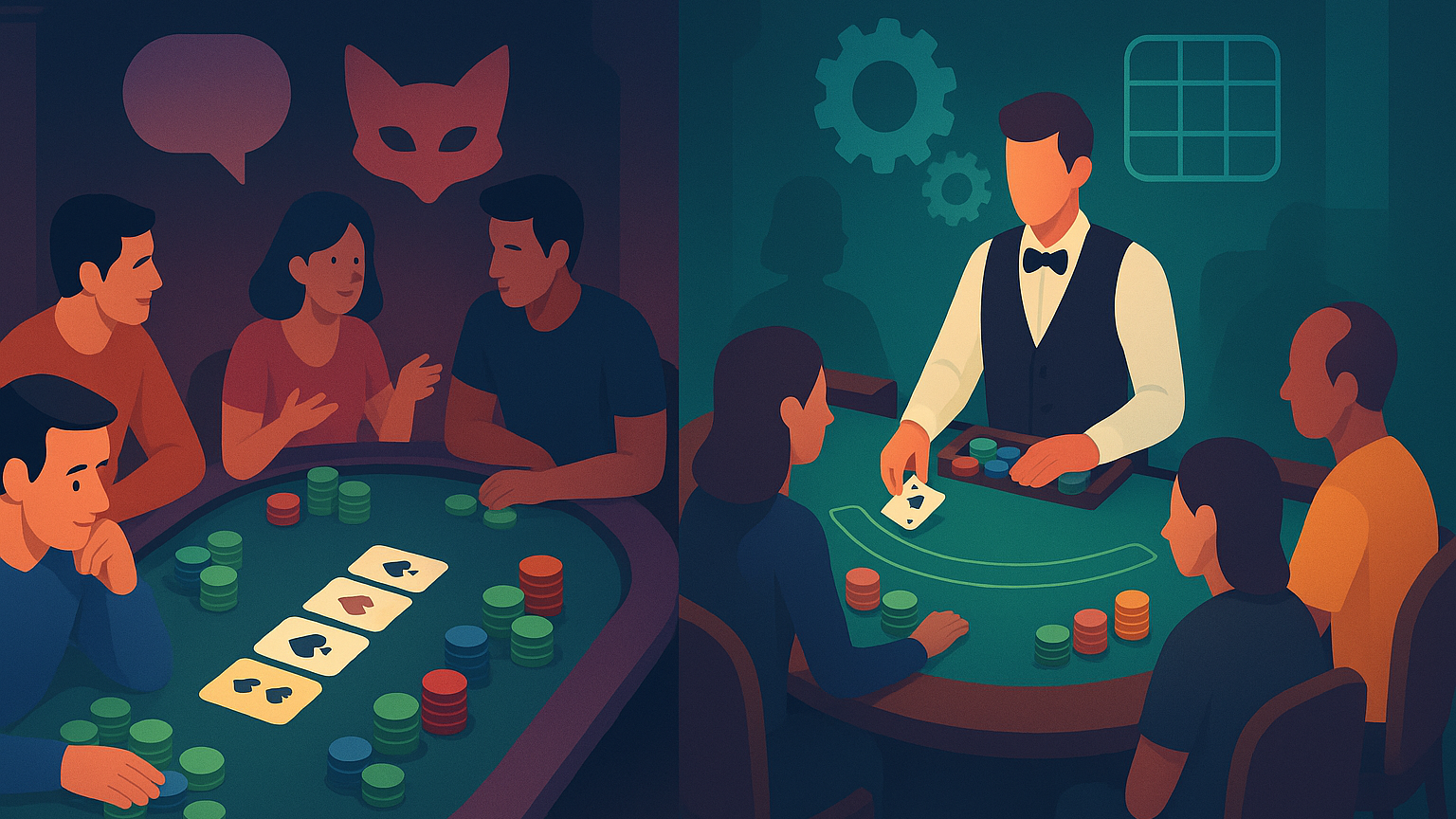Research suggests poker attracts people who thrive on psychology and social competition, while blackjack appeals to those who value structure and mathematics. Understanding these differences can help you choose the game that matches your strengths—and avoid frustrations at the table.
The Analytical Player
Some people approach games with discipline and logic. They’re calm under pressure, comfortable with numbers, and prefer structured systems over improvisation. Poker: For analytical players, poker offers constant mental stimulation. The game requires weighing pot odds, assessing opponents’ behavior, and adapting strategy as situations change. Those who stay emotionally steady often excel, since poker rewards patience and rational decision-making.
Blackjack: If you prefer consistency, blackjack provides a nearly mathematical framework. Basic strategy charts tell you the correct move in every situation, and sticking to the system produces predictable long-term results. For players who like order and quantifiable progress, blackjack’s structure is appealing.
The Risk-Taker
Other players thrive on adrenaline. They enjoy volatility, chase excitement, and see big swings as part of the fun. Poker: The dramatic all-in moves and tournament dynamics make poker a natural fit for risk-takers. Bluffing, outmaneuvering opponents, and embracing variance provide the emotional highs they seek. The potential for large paydays in a single hand is a strong draw.

Blackjack: While blackjack is generally steadier, its fast pace can still appeal to action-seekers. Side bets and aggressive wagering strategies add volatility. The game offers frequent results, win or lose, every few minutes, providing the quick gratification that high-risk personalities crave.
The Social Player
Some players come for the cards, but stay for the people. They enjoy interaction, reading others, and the dynamics of competition or camaraderie. Poker: Table talk, bluffing, and the subtle cues of human behavior are central to poker. Success often depends on your ability to observe and influence others while protecting your own tells. Players who thrive on psychology and competition find poker deeply rewarding.
Blackjack: Here, the social aspect is lighter but still present. Everyone at the table plays against the dealer, which creates a sense of shared purpose. Celebrating a collective win or chatting casually while playing makes blackjack appealing to those who enjoy a friendly atmosphere without direct rivalry.
The Grinder
Then some players prefer steady progress over thrills. They’re patient, disciplined, and comfortable with long sessions focusing on incremental gains. Poker: For grinders, poker’s long-term skill element is attractive. Consistent, disciplined play can overcome short-term swings. Careful bankroll management and a focus on strategy allow grinders to build steady results over time.
Blackjack: Blackjack also rewards discipline. Following basic strategy precisely and managing wagers carefully creates a reliable edge—or at least minimizes losses. For those willing to study advanced techniques like card counting, the game can offer even more opportunities.

Choosing Your Game
The best choice depends on your personality. If you enjoy competition, psychological challenges, and don’t mind variance, poker is a natural fit. If you prefer structure, like applying proven systems, and want entertainment with predictable outcomes, blackjack might be the better choice.
That’s why self-reflection matters. Considering risk tolerance, social preference, and learning style is key when choosing which card game suits your style. By aligning your game with your personality, you’ll maximize both enjoyment and long-term success.
Final Thoughts
Neither game is “better” - they simply appeal to different types of players. Poker rewards strategic depth, psychological insight, and a willingness to embrace risk. Blackjack rewards structure, discipline, and consistent execution. At the end of the day, the right game is the one that complements not just your bankroll, but who you are as a player.




